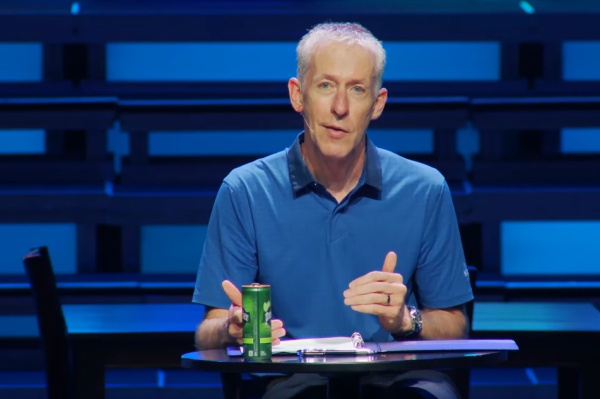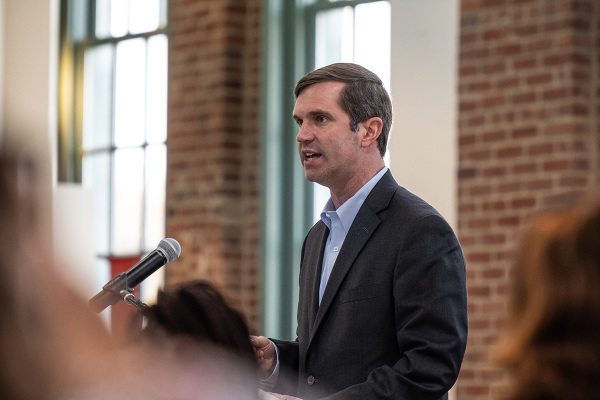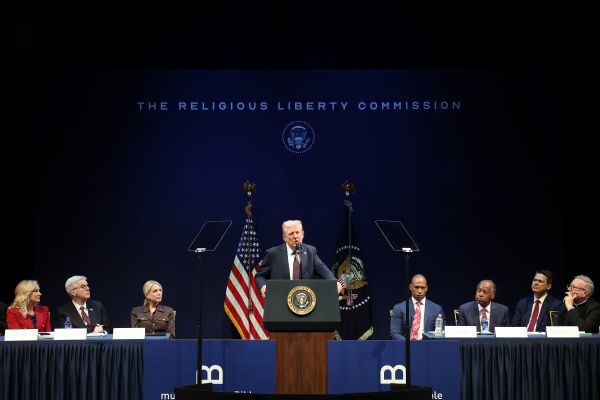Pastor Choco De Jesús tackles divisions in society, wants churches to be 'referee' in politics
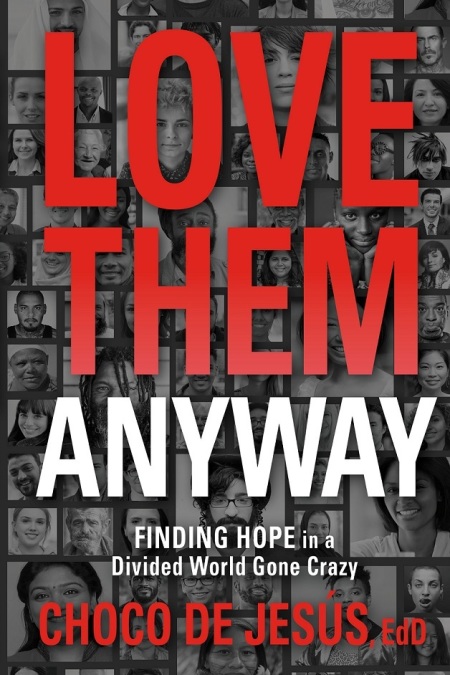
Pentecostal Pastor Wilfredo “Choco” De Jesús is working to tackle the problem of divisiveness and the need for churches to address the issue inwardly and outwardly.
De Jesús looks to help churches better witness to a divided society in his book, Love Them Anyway: Finding Hope in a Divided World Gone Crazy, slated for release on June 1.
In the book, De Jesús, who serves as general treasurer of the Assemblies of God, drew from his experiences serving as senior pastor of New Life Covenant Church of Chicago, Illinois, to write about the need for congregations to look beyond their own.
"Jesus broke social and religious boundaries to love those whom the religious people detested,” he wrote in the opening chapter of the book.
“He didn't just love them at arm's length — He ate with them, laughed with them, and made them feel completely comfortable."
The Christian Post spoke with Choco De Jesús about his new book, which covers such issues as civility and the Church being more welcoming. Below are excerpts from that interview.
CP: Recently, many essays and books have been written about the rising tide of incivility and tribalism in America and the need to address it. What do you believe makes your book an important contribution to the discussion?
De Jesús: The book itself not only addresses the pew, but also the people that are not of the pew. I think it cuts right through the middle of everything.
I think the book is going to be able to answer the question to both sides: “What do we do now with all the rising tension and so forth?” So in my opinion, Love Them Anyway will answer that question that people have been asking about the racial tension, the political unrest, etc.
CP: In Chapter 2, you discussed the changes you made to New Life Covenant when you became the senior pastor, including changing the name and removing an imposing security gate. Do you believe that more churches need to make those sorts of changes? And if so, how do you sell that to churches in an age when many churches have been the sites of disturbing violence?
De Jesús: I just felt that that gate just sent a message.
It is an unintended consequence. We wanted to protect our drum set, we wanted to protect our sound system and our community, but those gates needed to be removed.
And for me, to go to church and begin to sell that message is to tell them, listen, we have been called to be vulnerable. We cannot try to play it safe. We've got to be able to be vulnerable to those who are around us, who are hurting. They're going to steal from us, they're going to backstab us, but we're going to let love drive this for us.
I remember us moving it. It was a big thing for us to remove those black iron fence gates from the doors. And I think it was a clear message for the church and for the community that they were welcomed to come just as they are.
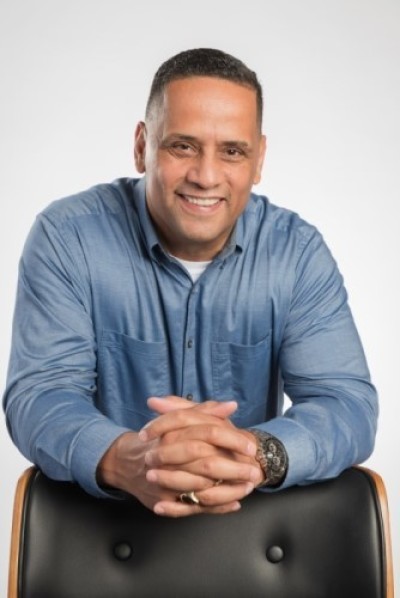
CP: In Chapter 4, you listed common blind spots people have in their relationships, among them "superiority," "entitlement," "suspicion," "past wounds" and "lost ground." What would you say tends to be especially problematic in American churches?
De Jesús: Not only superiority but entitlement. And I think one of the problems in the American Church is that they feel that they have this monopoly on what God wants us to do. And we're learning. We're learning in the way we learn of the true Gospel about loving people, ... that we would drop our superiority, we would drop our entitlement.
I talked about past wounds. The hardest thing is to trust people, and so we need to move past that and be able to put ourselves in a position to represent the Kingdom of God here on Earth.
We are citizens of Heaven here on Earth. And we're here to legislate. What are we here to legislate? The Bible. We're here to love people and to talk to about God's love. But if we continue to walk with this sense of entitlement, we're in trouble.
We've got to sit up and notice who's not in the church. Someone that does not look like us, someone that doesn't smell like us. So we got to be able to reach out. And that's what I did in Chicago. When I became the pastor, I started throwing the net. I started fishing for people.
I brought in black fish, white fish, gay fish, straight fish, smelly fish, and I just trusted the Holy Spirit to clean out the people. I was called to fish, and the American Church needs to remember what we're called to do. We're called to empty Hell and fill Heaven to the glory of God.
CP: You mentioned that, over the course of about a week, you went to a gathering with a lesbian Democrat mayor and her supporters and then, at a different event, met with Trump administration officials. You wrote in the book: "Each side can be upset with me. I'm just following the example of Jesus by reaching out to people all across the spectrum to love them where they are." With that noted, did you get any negative feedback for being at either event?
De Jesús: Some, both sides, people messaged me [on social media] saying, “Why would you want to be in the room with her?” “Why would you want to be in the White House? He's controversial,” and I answered this way: I'm a referee.
In the NFL, there are three teams: the offense and the defense; the third team is the referee. And we, as Christians, as pastors, we are to be the referees in the field of life.
I'm here on planet Earth to legislate the playbook, which is the Bible, to Lori Lightfoot, Mayor Lightfoot, and then-President Trump. When I see something wrong, I call it out to the mayor. When I see something wrong, I call it out to the president.
The moment you pick a side, you have lost your prophetic voice to legislate love, the Bible, here on planet Earth. I love and pray for my mayor, Lightfoot, I pray for President Trump, now President Biden. I pray for them. But I am going to be a prophetic voice.
CP: You devote a chapter to confronting "your inner Pharisee." Earlier this year, distinguished theologian R.T. Kendall had a book published titled, You Might Be a Pharisee If ... in which he said the Pharisaic tendency was pervasive in churches and in people in general. Would you say that's an accurate assessment of the Pharisee issue?
De Jesús: I would say yes, there are Pharisees in the churches. Some of the meanest people could be in the churches.
When you look at Luke Chapter 15 ... it is about the Prodigal Son. I preached that both kids are prodigal. One is lost in his sin and one is lost in his religious ways.
We got to be able to pause for a moment and say, “wait a minute, this is who Jesus came against. This is who He came to address.” For the religious folks, the people who were just marginalizing the hurting, and the folks who were prostitutes or adulterers. Jesus came to be able to address those issues. And Christians in our nation, they have to be able to be spiritual, not secular. We are in this world, but we're not of this world. We represent the Kingdom.
People want to be religious, they want to be religious. I don't want to be religious. I want to be a believer; I want to be a disciple of Jesus Christ. That's totally different from being a Pharisee.
CP: What do you hope people take away from your book?
De Jesús: We have a currency, and what we need to withdraw from the bank of Heaven is love. More than Bible study, more than prayer, more than fasting. Those are great disciplines in life, but love is the foundation. I hope they walk away from this book and at least do a self-examination and say, “boy, I lack love. I am bankrupt, I am bankrupt in love, and I need to tap into the bank of Heaven and love people.”
Think about what Jesus told the teacher, the ruler. "... Love your neighbors," and "do this and you will live." If you do these things, you will live.
And that's what's happening in our culture today. We have so many Christians that are existing, but they are not living. And the only way we can live is when we operate with the currency of Heaven, which is love.










